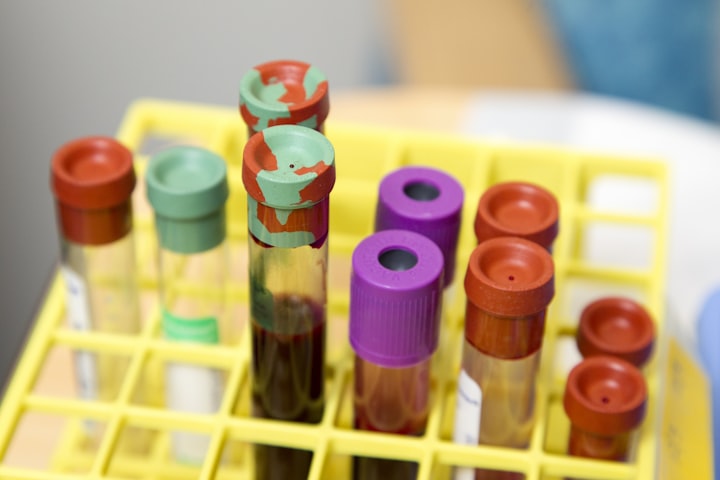1 Cup of This TARGETS Erratic Blood Sugar Overnight
The Key to Regulating Erratic Blood Sugar and Taking Control of Your Health

Erratic Blood Sugar: Understanding the Challenges and Managing the Condition
Erratic blood sugar levels can pose significant challenges to individuals who experience them. The term "erratic blood sugar" refers to fluctuating blood glucose levels that are inconsistent and unpredictable. This condition can affect people with diabetes as well as those without a diagnosed condition, and it can have a profound impact on their overall health and well-being. In this article, we will explore the causes, symptoms, and management strategies for erratic blood sugar, shedding light on this important health concern.
Causes of Erratic Blood Sugar:
Several factors can contribute to erratic blood sugar levels. For individuals with diabetes, insufficient insulin production or impaired insulin function is often the primary cause. Insulin is a hormone responsible for regulating blood sugar levels by facilitating the absorption of glucose into cells. Any disruption in this process can lead to unstable blood sugar levels.
Lifestyle choices can also play a significant role in erratic blood sugar. Poor dietary habits, irregular meal timings, excessive intake of sugary foods, and lack of physical activity can all contribute to blood sugar fluctuations. Additionally, stress, certain medications, hormonal imbalances, and underlying health conditions can further exacerbate the problem.
Symptoms of Erratic Blood Sugar:
Erratic blood sugar levels can manifest in various symptoms, which can vary depending on whether the blood sugar is too high (hyperglycemia) or too low (hypoglycemia). Some common symptoms of hyperglycemia include increased thirst, frequent urination, fatigue, blurred vision, unexplained weight loss, and slow wound healing. On the other hand, symptoms of hypoglycemia include shakiness, dizziness, sweating, anxiety, confusion, and in severe cases, loss of consciousness or seizures.
Managing Erratic Blood Sugar:
Effectively managing erratic blood sugar is crucial to maintaining overall health and preventing complications. Here are some key strategies for managing this condition:
1. Blood Sugar Monitoring: Regular monitoring of blood glucose levels is essential for understanding patterns and identifying triggers for erratic blood sugar. This can be done using a blood glucose meter or continuous glucose monitoring systems.
2. Medication and Insulin Management: For individuals with diabetes, following prescribed medication regimens and insulin therapy is essential to help stabilize blood sugar levels. Working closely with healthcare providers to adjust medication dosages as needed is crucial in managing the condition effectively.
3. Healthy Eating Habits: Adopting a well-balanced, nutritious diet is paramount. Focus on consuming whole grains, lean proteins, fruits, vegetables, and healthy fats while limiting sugary and processed foods. Consistent meal timings and portion control can help regulate blood sugar levels.
4. Regular Physical Activity: Engaging in regular exercise has numerous benefits, including better blood sugar control. Physical activity helps improve insulin sensitivity, allowing for better glucose utilization by cells. Aim for at least 150 minutes of moderate-intensity exercise per week, as recommended by health authorities.
5. Stress Management: Chronic stress can contribute to erratic blood sugar levels. Implement stress management techniques such as meditation, deep breathing exercises, yoga, or engaging in hobbies to reduce stress and promote overall well-being.
6. Hydration: Drinking an adequate amount of water helps maintain proper hydration levels, supports kidney function, and aids in regulating blood sugar levels. Aim for at least 8 cups (64 ounces) of water per day, or adjust as per individual needs.
7. Regular Sleep Patterns: Establishing a consistent sleep schedule and ensuring sufficient sleep is vital for managing blood sugar levels. Poor sleep can affect insulin sensitivity and lead to hormonal imbalances, potentially causing blood sugar fluctuations.
8. Education and Support: Seek information and guidance from healthcare professionals, diabetes educators, or support groups. Education about managing diabetes and erratic blood sugar empowers individuals to make informed decisions and take control of their health. Attend diabetes management classes or workshops to learn about the latest advancements in diabetes care, meal planning, and self-monitoring techniques.
9. Meal Planning and Portion Control: Creating a structured meal plan can help maintain consistent blood sugar levels. Consult with a registered dietitian to develop a personalized meal plan that takes into account your specific dietary needs and preferences. Portion control is also crucial to prevent overeating and avoid sudden spikes in blood sugar levels.
10. Regular Medical Check-ups: Regular visits to your healthcare provider are essential for monitoring your overall health and managing erratic blood sugar. They can perform tests to assess your blood sugar control and check for any potential complications. Adjustments to medication or treatment plans may be made based on these assessments.
Click here to get solution for erratic blood sugar
11. Emergency Preparedness: It is crucial to be prepared for potential emergencies related to blood sugar fluctuations. Always carry a source of fast-acting glucose, such as glucose tablets or gel, to treat hypoglycemia promptly. Inform close friends, family members, or coworkers about your condition and educate them on how to assist you in case of an emergency.
12. Consistent Self-Care: Taking care of yourself holistically is vital when managing erratic blood sugar levels. Practice good hygiene, prioritize self-care activities, and maintain a positive mindset. Surround yourself with a supportive network of family and friends who understand your condition and can provide emotional support.
13. Tracking and Documentation: Keeping a record of your blood sugar readings, meals, medication, physical activity, and any symptoms experienced can provide valuable insights. Analyzing this data can help identify patterns, trigger factors, and assist healthcare professionals in making informed decisions regarding your treatment plan.
14. Awareness of Symptoms: Be vigilant about recognizing the early signs of blood sugar fluctuations. Regularly check for symptoms such as excessive thirst, frequent urination, fatigue, irritability, or dizziness. Promptly address any unusual symptoms and consult with your healthcare provider if needed.
15. Continuous Education: Stay informed about the latest advancements in diabetes management and blood sugar control. Attend seminars, workshops, or webinars hosted by reputable organizations to enhance your knowledge and stay up to date with emerging research and treatment options.
Don't let erratic blood sugar control your life any longer. Take charge of your health with Gluconite and experience the difference it can make. Join the countless individuals who have already transformed their lives with this exceptional supplement.
Dominate the diabetes niche and reclaim your vitality with Gluconite! Say hello to balanced blood sugar and goodbye to the challenges of erratic glucose levels. Try Gluconite today and discover the power of this game-changing solution. Your journey to better health starts now!
Click here to get solution for erratic blood sugar
In conclusion, managing erratic blood sugar levels requires a comprehensive approach that encompasses lifestyle modifications, medication management, and regular monitoring. By adopting healthy habits, seeking professional guidance, and staying proactive in self-care, individuals can effectively manage their condition and minimize the potential complications associated with erratic blood sugar. Remember, each person's journey is unique, and it's essential to work closely with healthcare professionals to develop a personalized plan that suits your specific needs.





Comments
There are no comments for this story
Be the first to respond and start the conversation.